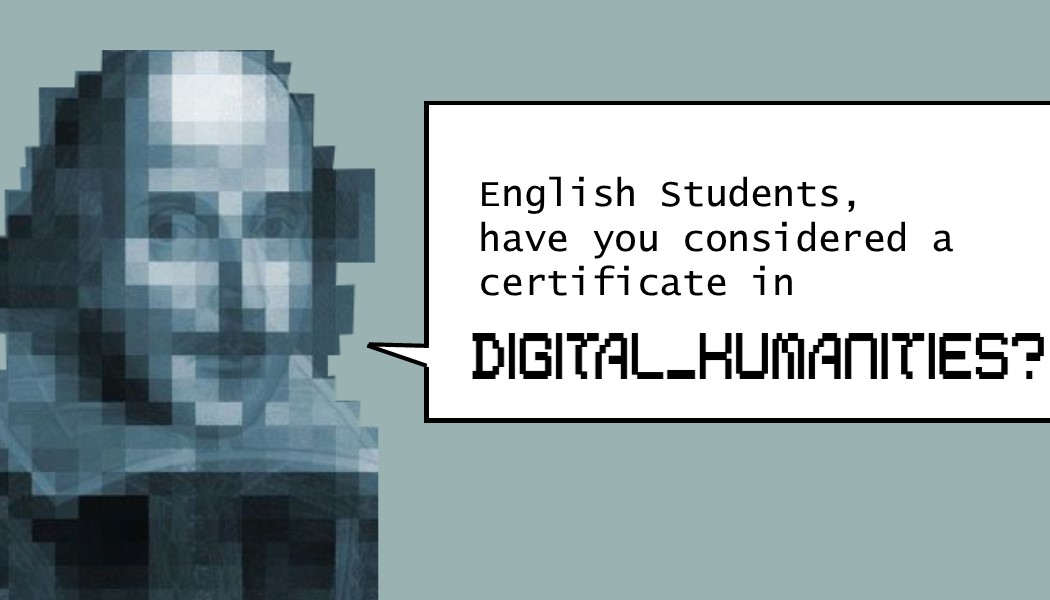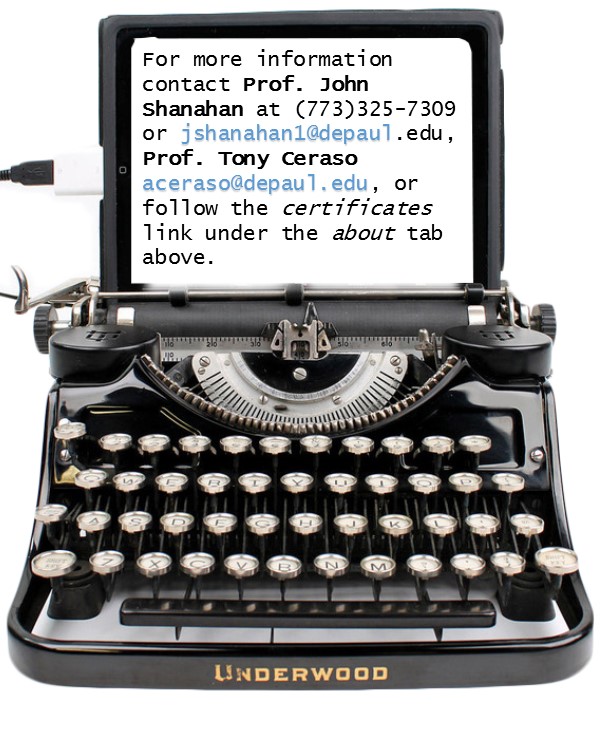Digital Humanities, or just simply “DH,” is the name for a set of computer-based tools and methods used by people in the humanities that are increasingly important for students in virtually every field of study.
This interdisciplinary program taught by faculty from across the university focuses on training students and providing hands on experience with the tools, methods, and real-world projects that have become central to cutting-edge humanities scholarship.
Winter 2016 Course Descriptions:
DIGITAL HUMANITIES CORE COURSE
NMS 580: MARKUP AND TEXT ENCODING IN THE HUMANITIES
with Prof. Antonio Ceraso (WRD/New Media Studies) Wed. 6:00-9:15 pm LPC
This course introduces students to the theory and practice of markup languages, text encoding, and text analysis in the context of humanities research and the processing and publication of digital texts. Students will explore the basics of syntax and standards for XML, as well as for XML-schemas used for humanities publication projects, particularly the Text Encoding Initiative (TEI) guideline. Students will also practice text analysis with a variety of tools, including work with the R software environment. In addition to practice in text encoding and analysis, students will engage both theoretical discussions on digital text and ongoing case study projects to explore rhetorical and methodological choices researchers make as they develop projects that use and analyze encoded texts. The course is designed for students with a variety of professional goals, including work in digital publishing, technical and professional writing, and the digital humanities. The course will include a good deal of coding, but assumes no prior technical knowledge. We will start from scratch, and build our coding repertoires together.
DIGITAL HUMANITIES ELECTIVES
DHS 460 DIGITAL HISTORY
with Prof. Roshanna Slyvester (History) Mondays 6:00-9:15 pm LPC
This course introduces students to the rapidly expanding world of digital history. Students taking the course will enhance their understanding of the conceptual, theoretical, and ethical issues involved in doing digital history, as well as introducing them to the range of goals and approaches employed by those who engage in digital history research. The course will also improve students’ abilities to engage with the web or other digital media as public history spaces, give them hands on practice using digital tools, provide opportunities for them to work individually and collaboratively on digital history projects, and teach them about relevant ethical and legal issues (such as copyright and intellectual property issues). Finally, the course will feature topics of historical interest that lend themselves to digital treatments.
GEO 442: GIS FOR SUSTAINABLE URBAN DEVELOPMENT
with Prof. Julie Hwang (Geography) Tuesday 6:00-9:15 pm LPC
instructor permission only
This course will examine how GIS has been used to monitor, and evaluate efforts advancing sustainability in urban areas. Students will learn geospatial techniques in support of sustainable practices, including promoting energy efficiency, managing water resources, promoting sustainable options of transportation, improving access to local healthy foods, and responding to climate change. This is accomplished through hands-on lab activities and a case study conducted in collaboration with a non-profit organization engaged in promotion of sustainable practices in Chicago.
WRD 525 WRITING FOR THE WEB
with Prof. Lisa Dush (Writing, Rhetoric, and Discourse) Thursdays 6:00-9:00 pm LPC
In this course, you will learn how to create and deploy digital content that is compelling, user-friendly, optimized to travel through the Web, and appropriate for organizational aims. We will read about best practice for writing content on websites and social platforms, and learn typical workflows for content evaluation, creation, management, and governance. To better apply the concepts we learn, we will analyze specific industry examples and partner in teams with local organizations, with each team working with staff at their partner organization to evaluate existing web content and content practices, make recommendations, and as time permits, develop new content and processes. We will also discuss the ethical and tactical challenges that today’s content creators face, as they work to develop content practices that are both effective and sustainable.

